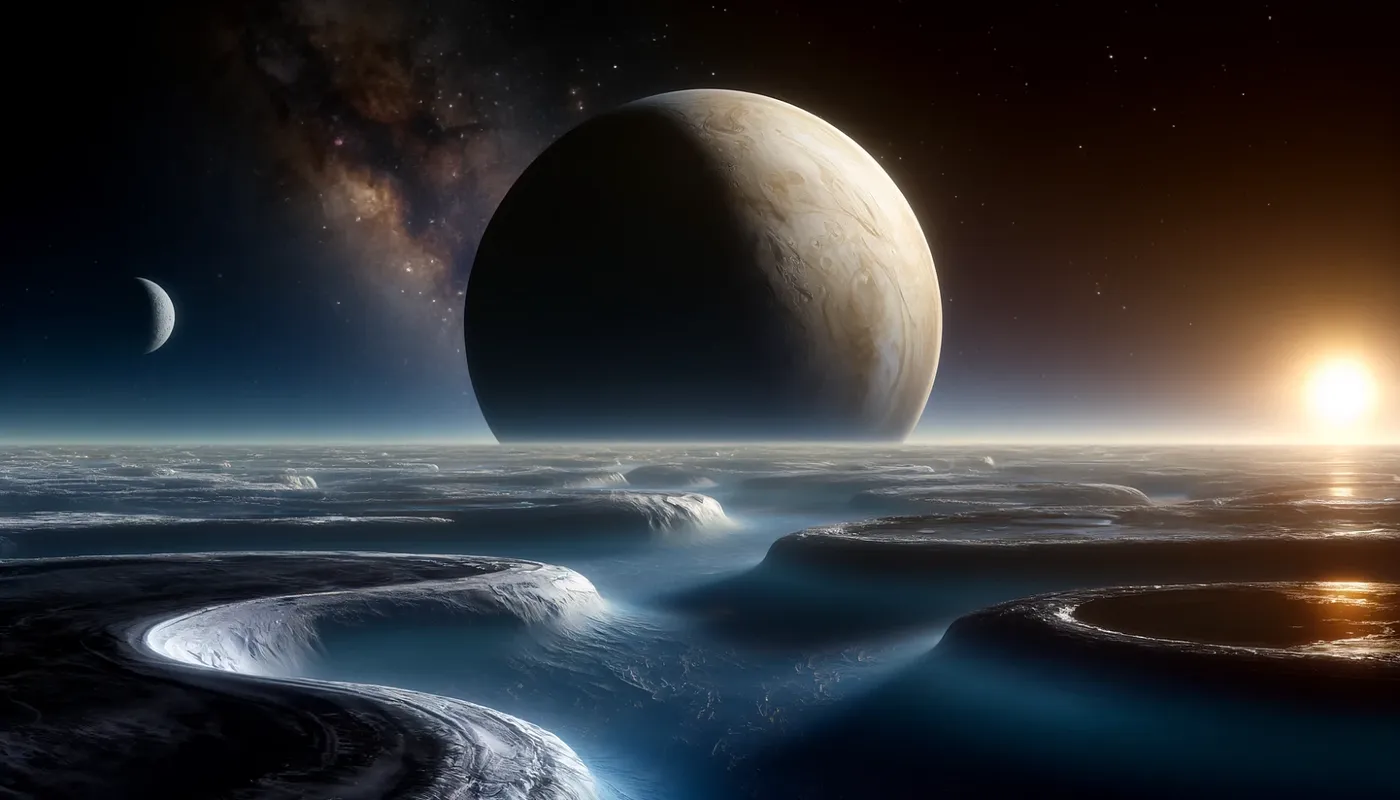
Unveiling the Mysteries: Evidence of a Massive Object Beyond Neptune
Astronomy enthusiasts and scientists alike are buzzing with excitement over a groundbreaking discovery.
Recent findings suggest the existence of a massive object lurking beyond the orbit of Neptune. This revelation has not only sparked curiosity but also promises to reshape our understanding of the solar system. So, what exactly is this mysterious object, and why is it so significant?
The Mysterious Object
Imagine a colossal entity silently orbiting the sun far beyond Neptune, an object that has managed to elude detection until now. This massive object, whose exact nature is still under investigation, was discovered through meticulous observations and advanced astronomical techniques. Its detection hints at the vast, unexplored regions of our solar system that still hold many secrets.
Astronomical Significance
The discovery of this massive object is monumental for several reasons:
- Challenges to Current Understanding: It challenges our current understanding of the solar system's structure.
- Insights into Planetary Formation: If confirmed, this object could provide insights into the formation and evolution of planetary bodies.
- Existence of Other Unknown Entities: It raises intriguing questions about the existence of other unknown entities in the distant reaches of our solar system.
The Role of Neptune's Orbit
Neptune, the eighth planet from the sun, has always intrigued astronomers due to its distant and relatively unexplored orbit. The newly discovered object appears to exert an influence on Neptune's trajectory, suggesting a gravitational interaction. Understanding this relationship could shed light on the dynamics of distant celestial bodies and their impact on each other.
Tools and Methods Used
Detecting such a remote object requires sophisticated tools and methods:
- High-powered Telescopes: Equipped with advanced sensors played a crucial role in this discovery.
- Indirect Observation Techniques: Astronomers looked for effects on other objects (like Neptune), which opened new avenues for exploring the farthest reaches of our solar system.
Historical Context
This is not the first time astronomers have discovered objects beyond Neptune. Previous findings, such as the dwarf planet Eris, have hinted at a more populated outer solar system than initially thought. However, the newly discovered object is unique due to its size and the potential implications it holds for our understanding of solar system dynamics.
Theoretical Implications
The discovery of a massive object beyond Neptune fits into some existing theories but also challenges others:
- Supports Existing Theories: It supports the idea that our solar system has many more large bodies than previously identified.
- Challenges Current Models: It suggests that current models of solar system formation might need revision to account for such distant and massive entities.
Challenges in Detection
Observing distant objects in the solar system is fraught with challenges:
- Vast Distances and Faintness: These objects are extremely far away and faint.
- Interference of Other Celestial Bodies: Other celestial bodies can interfere with observations.
- Innovations in Telescope Technology: Innovations have been crucial in overcoming these hurdles.
Comparisons with Other Celestial Bodies
Comparing the newly discovered object with known celestial bodies helps highlight its unique features:
- Different Composition and Orbital Characteristics: Unlike Pluto or Eris, this object seems to have a different composition and orbital characteristics.
- Clues about Origin: These differences might provide clues about its origin and the processes that shaped it.
Impact on Future Research
This discovery is a significant milestone that will undoubtedly influence future astronomical research:
- New Questions and Areas of Study: It opens up new questions and areas of study.
- Potential Future Missions: Future missions might be planned to explore this object up close, providing even more detailed information.
Scientific Reactions
The scientific community has reacted with a mix of excitement and skepticism:
- Thrill and Caution: While many are thrilled by the potential implications, others urge caution until more data is available.
- Driving Further Research: This healthy debate is driving further research and observation efforts, aiming to confirm and understand the nature of this massive object.
Public Interest and Media Coverage
Unsurprisingly, the discovery has captured the public's imagination. Media outlets have extensively covered the story, highlighting the potential for new knowledge about our solar system. Public interest in space exploration has surged, demonstrating our collective fascination with the unknown.
Educational Implications
This discovery offers a fantastic opportunity for education. It can be used to teach students about:
- Solar System: The solar system and the methods used in astronomy.
- Scientific Inquiry: The importance of scientific inquiry.
- Inspiration: Real-world examples that can inspire the next generation of scientists and explorers.
FAQs About the Discovery
Q: What exactly is the newly discovered object?
A: It is a massive celestial body beyond Neptune, potentially a planet or a large asteroid.
Q: How was it discovered?
A: Through advanced telescopes and observation techniques that detected its gravitational effects on Neptune.
Q: Why is this discovery important?
A: It challenges our understanding of the solar system and opens new avenues for research.
Q: Could this object affect Earth?
A: No, it is too far away to have any impact on Earth.
Q: What’s next in the study of this object?
A: Further observations and potentially a mission to explore it up close.
Conclusion
The discovery of a massive object beyond Neptune is a testament to the power of modern astronomy and our enduring quest to understand the cosmos. This finding not only expands our knowledge of the solar system but also ignites curiosity about what else might be out there, waiting to be discovered. As we continue to explore, who knows what other secrets the universe holds?
